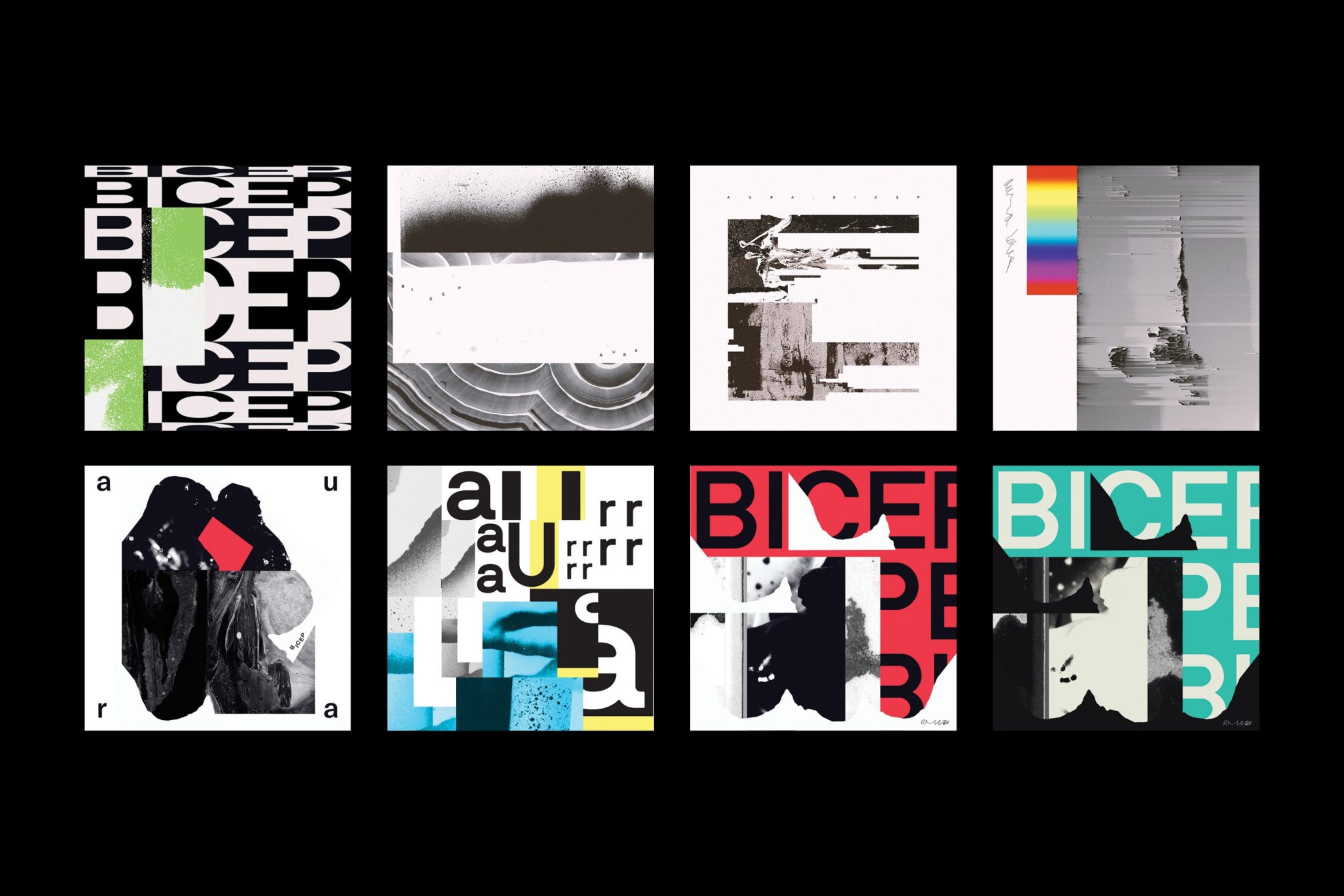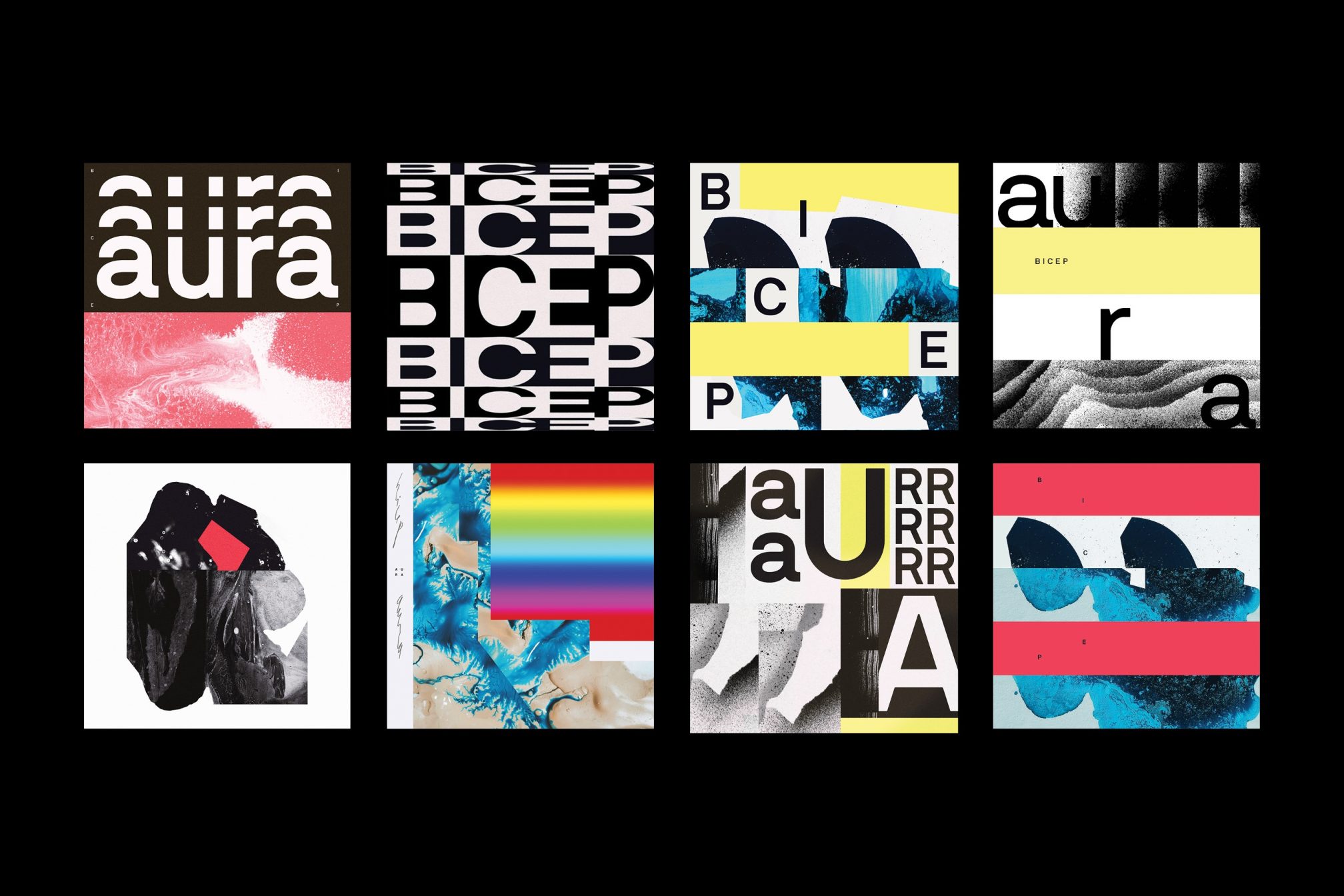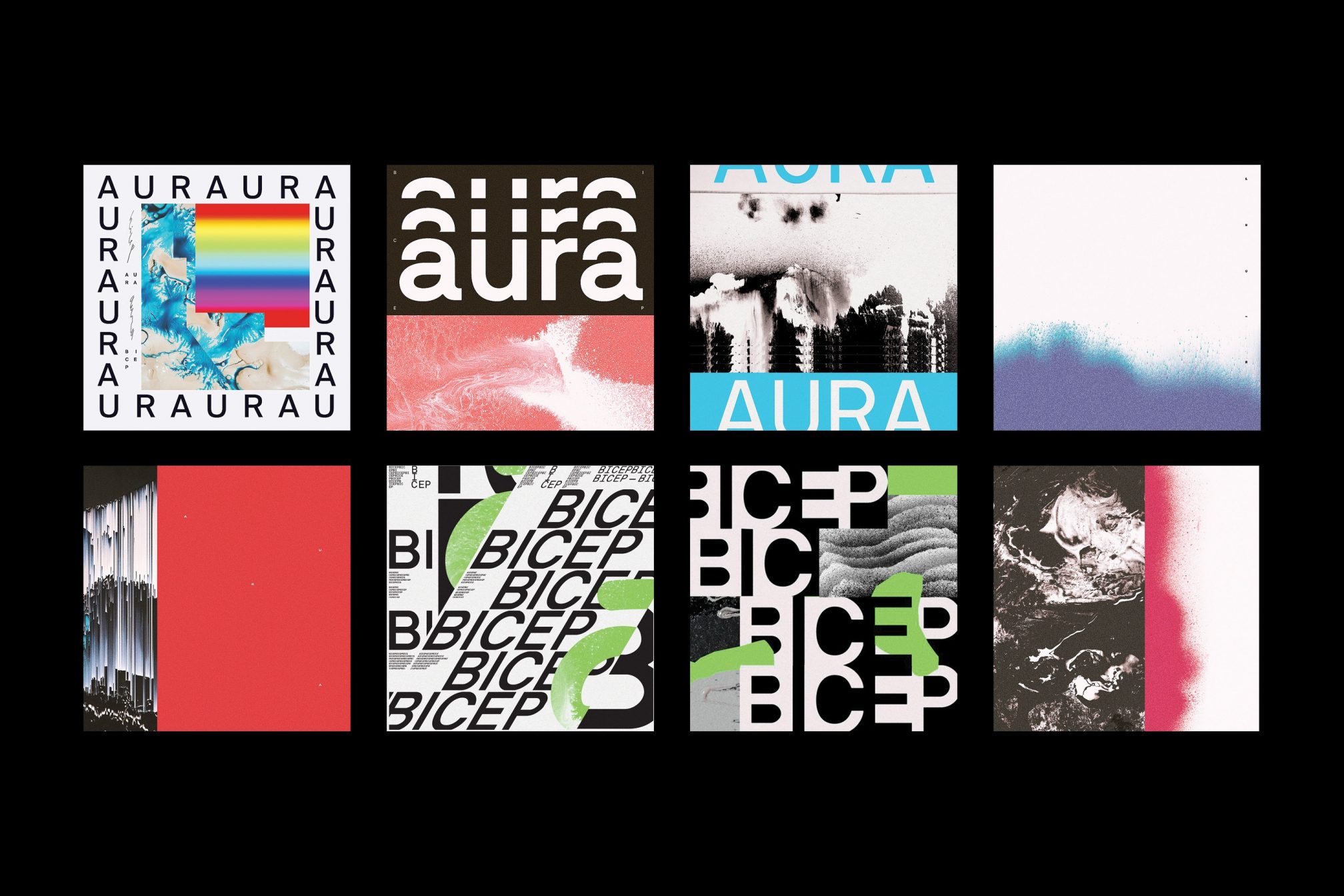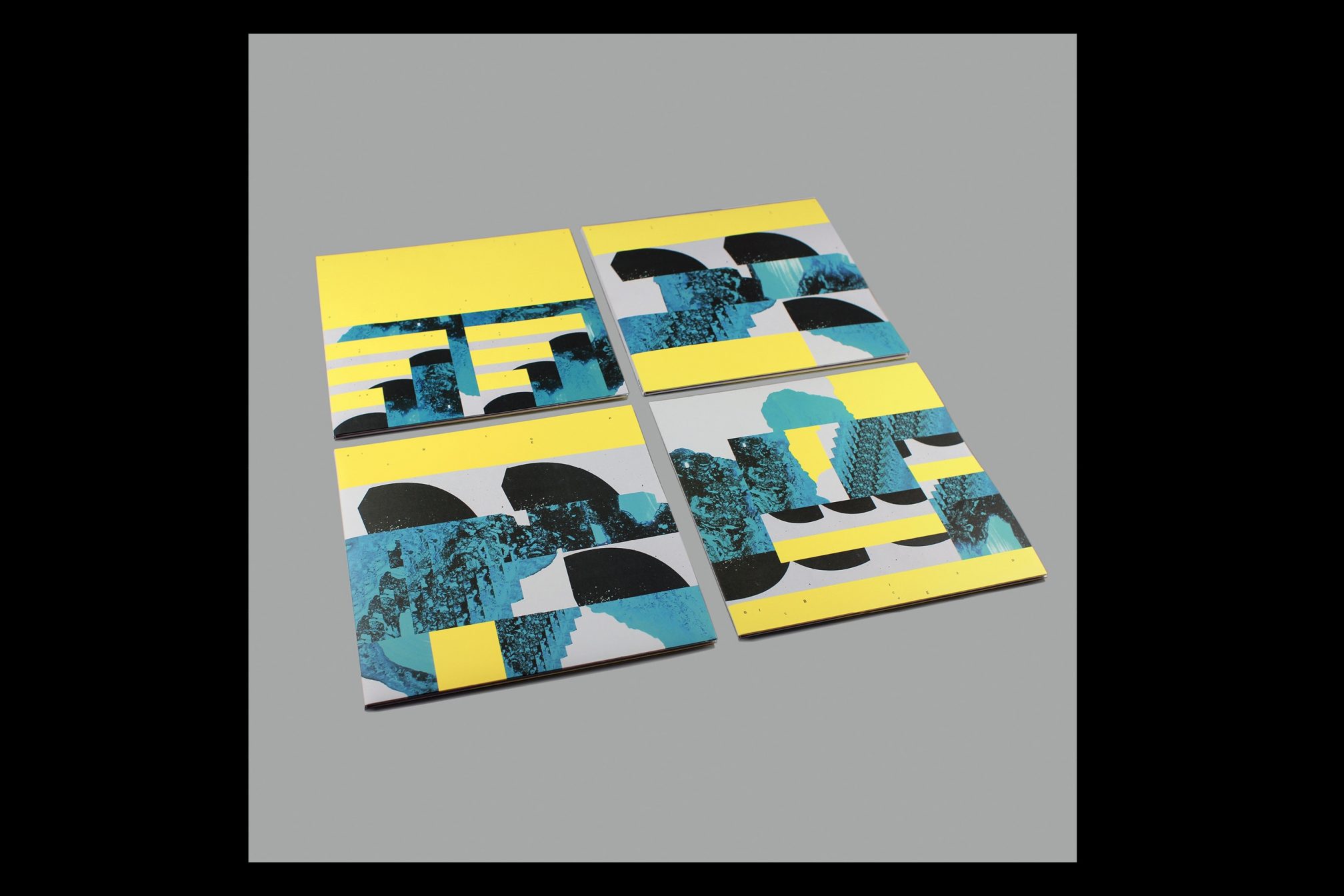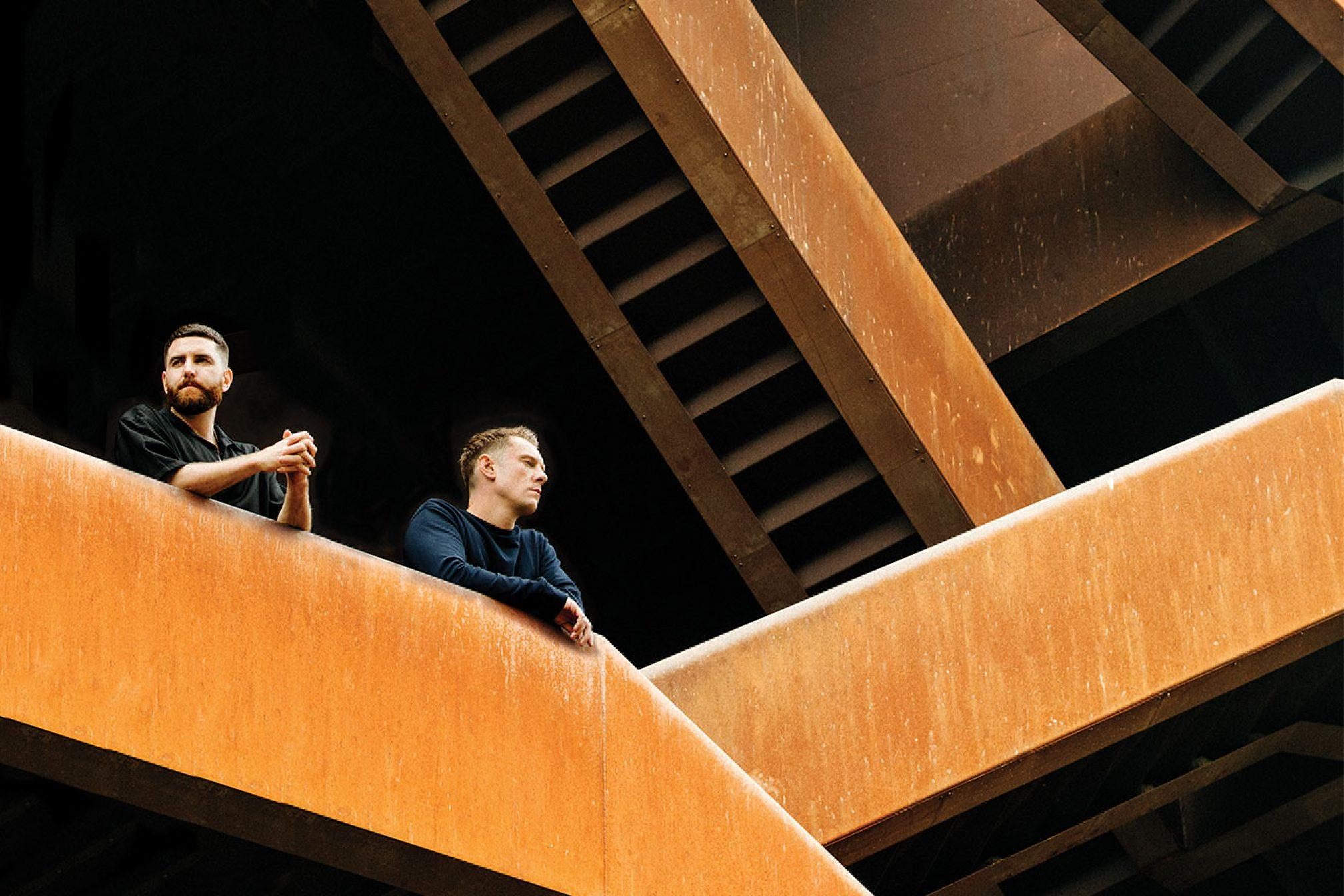 Cover stars
Cover stars
Flex it: Bicep's remarkable rise to stardom
The Belfast boys have gone from bloggers to big-time artists
In certain DJ circles, a USB stick belonging to Bicep is a prized secret weapon. Backstage at the Dekmantel festival in Amsterdam, there’s a commotion behind the booth. Dutch hometown hero Job Jobse is currently playing to thousands of ravers, but he has run to the top of the stairs overlooking the guest area and is calling out for the Belfast boys. Suddenly, Bicep’s Matt McBriar appears at the bottom of the stairs and lobs a tiny rectangle up to Jobse, as onlookers hold their breath. Jobse successfully seizes it from the air, dashes back to the decks, plugs it in, and out pours a joyous Italo-disco track to the crowd’s slack-jawed delight.
This elaborate game of catch occurs every time the Bicep boys and Jobse are at the same gig. The track was a special one-off made by Bicep as a wedding present for their agent, and they keep it under strict lock and key. Jobse is such a fan, though, that he asks the duo for permission to play it whenever they encounter each other on tour. It’s become a bit of a running joke, but it’s also some light relief in the Bicep camp. It wasn’t so long ago that 30-year-olds Matt McBriar and Andy Ferguson were just two former schoolmates with a music blog; now they’re a fully-fledged live act and about to showcase their self-titled debut album at one of Europe’s most respected electronic music festivals. The stakes are high.
“The bigger they are the more nervous you are,” says Matt, the taller and chattier of the two, referring to the increasingly large shows Bicep are playing.
“We packed up all our stuff in the dark at the last gig, and we haven’t opened the bags since,” adds Andy, who is beardier, blunter and always has a quip at the ready.
“If anything can go wrong, it will go wrong,” continues Matt. “We’ve got about seventy cables to get right.”
Andy rubs his chin restlessly. “We didn’t get a chance to start at two hundred-person clubs and build up slowly. One of our first ever live shows was the last set in a tent at Field Day and it’s like… argh!”

It’s true that Bicep’s rise has been at remarkable speed. Since they started the Feel My Bicep blog in 2008 they’ve pulled off the rare feat of going from internet pirates to internationally renowned DJ-producers to album artists, releasing club smash after smash and effortlessly ticking off the dance music rites of passage: live streams, Essential Mixes, XOYO residencies, Warehouse Project takeovers, getting remixed by Carl Craig. They’ve managed to hang on to that notoriously slippery concept known as credibility, and their three-armed wheel logo now such a distinctive stamp of quality that some fans have had it tattooed on – well, you can guess.
Crucially, though, Bicep have remained powerhouse tastemakers. Through their blog posts and mix series, their releases and their own record label, they’ve helped turn a generation of music fans onto leftfield disco, electronic oddities and rave oldies from the past four decades. In particular, their role in the classic house-influenced sound that has dominated dancefloors in the past five years has been pivotal, even if they’d rather not admit that themselves. “The nineties was the last big area to blog – it was an amazing period,” says Andy, who was drawn to the simplicity of its piano hooks and “the carefreeness of it all”. It infiltrated their own productions, too, but when they realised how much it had caught on, “we stopped after that.”
“[It got to the point that] if I started playing some Italo-disco that we’ve put up on the blog,” says Matt, “people would be like, ‘Why are you playing that, you’re nineties house DJs’, and I’d be like, ‘This is ridiculous’.”
That particular strain of retro revivalism is only half the Bicep story. They are quickly becoming better known for flexing their muscles in, well, any old club genre they care to revisit. Their current productions switch between breakbeat, ambient, Italo, trance and techno, all while sounding distinctly Biceppy: beefy, muscular, but no fat. These genres are already seeping into the wider club world but Bicep are blasé about being ahead of the musical curve. “We change our own curve every time and people follow it,” says Andy. Beyond their blog-worth of free music, Bicep don’t tend to give much away. At the same time as being a modern-day success story, their personalities remain fairly ambiguous. “I wouldn’t say we are outsiders,” says Andy. “Probably insiders that keep quiet.”
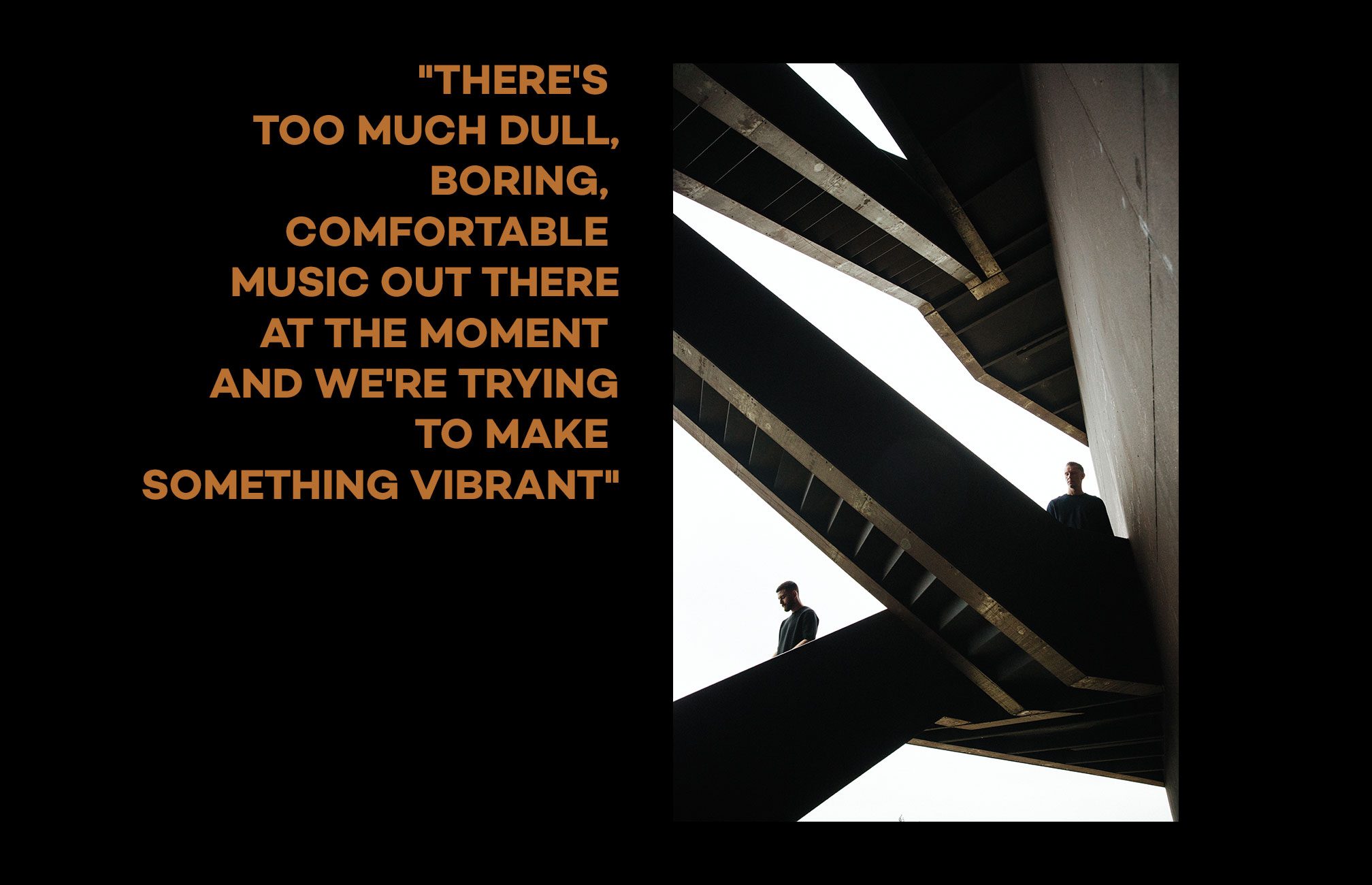
Never mind quiet: Bicep appear to have a telepathic connection when they perform. That’s perhaps not unusual when you consider that they’ve known each other since they were nine years old, when they met at rugby practice back in Belfast. Andy was more into punk and heavy metal growing up, while Matt wasn’t into house music at all when he was younger. It was a girlfriend who bought him “an Aphex Twin album by accident”, which rapidly broadened his musical horizons. Indeed, Matt experienced dance music a little bit before Andy, purely for reasons of height, as he could get into the local nightclub Shine more easily. “We were sixteen and putting tennis balls in our shoes to poke ourselves up an extra couple of inches,” recalls Matt. “We had fake IDs and everything.”
Pilgrimages to Shine became commonplace among Matt and Andy’s friendship group, where they’d see DJs like Underground Resistance, Dave Clarke and Andrew Weatherall banging out hard techno. Their newfound interest in electronic music kickstarted their penchant for digging. “Every week people would go to my friend’s garage before the club with CDs and put on their tune,” says Andy. “There would always be a fight over who played what.” The styles of music they fought over were, in typically Bicep style, pretty unexpected, too. “Finding the most unknown power ballad was a big one,” says Matt. “I’m not talking about ones you get on a Jeremy Clarkson-style drive-time show; I mean weird, rare ones.”

The Feel My Bicep blog began as a way to stay in touch with those friends, who had dispersed across the UK for university, and so they could keep uncovering those weird, rare ones. At the time, the darker strains of minimal techno were “huge, it was the most soulless period [for music] ever,” says Andy, and so they “flipped into Italo-disco because that was the complete opposite”. In actual fact their first posts were The Tough’s ‘A New Chance’ (Mungolian Jet Set remix), a psychedelic disco remix signed to the Modular label, followed by some old Kompakt records. But the basis of the blog, whatever the genre, was fun, sleazy and not taking itself too seriously, filled with rips of new remixes and hard-won vintage finds, all coupled with cheeky write-ups and imagery.
It’s almost impossible to imagine now, but when they started Feel My Bicep, says Matt, “YouTube didn’t have anything underground on it. It was the pre-SoundCloud era.” Blogs like theirs were then one of the only ways to access a broad range of discerning dance sounds from across the decades. Andy and Matt found old releases by scouring record shops – something they lament not having enough time for now. Matt also bemoans the fact that “more people are into music but aren’t as patient when they’re looking for it” – not to mention the fact that a record a DJ has spent years looking for is now available to everyone in a Track ID group. But mainly, Andy says, they liked the freedom of “being nobody, so we could do what we wanted. We always wanted to do our own thing and not be controlled”. It’s a precept they appear to have stuck to – but more on that later.
Before long, the blog’s popularity skyrocketed – at its peak it was getting 100,000 viewers a month. DJ bookings began flooding in from all over the world. By this time Matt had emigrated to Dubai, Andy was in London, and the duo were blogging and gigging cross-continentally at the same time as managing full-time jobs. The blog was their way of keeping in touch but also of keeping ahead of trends, and soon the pair were funnelling that knowledge into their own productions, swapping stems across Skype and passing tracks back and forth.
It was the success of their thwacking piano-house track ‘Vision Of Love’ in 2012, however, that convinced them that they had a chance to turn music into a career, if they could work out how to be in the same time zone. So Matt relocated to London, packed in his design work, and together they found a studio. They taught themselves to play piano properly, and took crash courses from other producers to better their studio skills. It wasn’t always easy. Often they’d be on the breadline so literally that they would be waiting for the local supermarket to reduce its sandwiches. “There were points when we were broke for a long time,” says Andy, though the grind made them work harder. “[When you] both quit your jobs with steady incomes – you don’t take anything for granted,” says Matt. “You appreciate everything.”
Surprisingly, part of why they originally delved into nineties-style house was also down to resources. “We couldn’t afford any drum machines or synths at that time, so we were kind of restricted,” says Matt. “It was quite easy to cut up samples and make something decent” – as opposed to using an expensive synth to make more complex music. “We went for a simple approach,” continues Andy, “which was just sampling organs, sampling vocals, sampling drums and keeping it raw. A lot of artists in the nineties could only afford, like, a [Korg] M1 piano.” “And that’s why people got into it,” finishes Matt. “It was possible to do it.”
You could say that too many latter-day producers realised it was possible to do it, and soon the refreshed analogue house sound of the late-2010s proved inescapable. Bicep decided to change course. “We probably had two albums worth of tracks made that we binned, and we moved on,” says Matt. “I didn’t like the idea of everyone expecting something.”
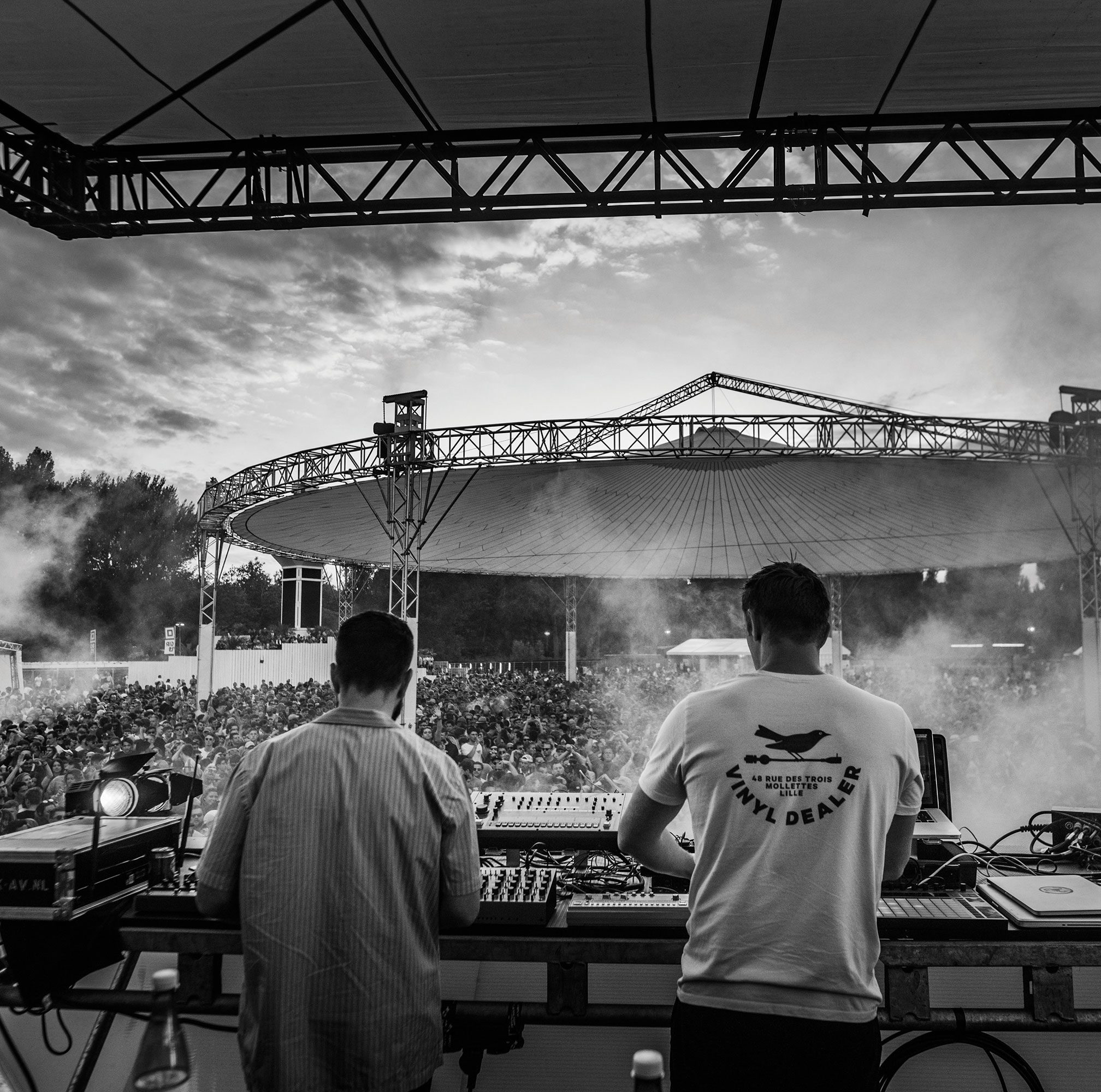
The popularity of their early releases did, however, allow them to start building a proper studio, which they had wanted to do ever since collaborating with analogue pros Simian Mobile Disco in 2013 (on wonky techno pounder ‘Sacrifice’). It was time to consider the future more seriously. “That was a period where we just stopped and thought about what we were saying [musically],” says Matt. “We could start affording synths and some hardware. Then we found our feet in what we actually wanted to do, and we came back.” They came back, of course, with the ‘Just’ EP. Its title track showcased their deeper, more evocative side, with its blippy melody and purple-hued shades of Detroit, and it was named Mixmag’s top tune of 2015.
Just two years later and they’ve flipped genres once again. Back at Dekmantel’s mainstage, Bicep launch into their live show, weaving old tunes into new tracks that sound like they could be banging out of a wobbly speaker stack at a Fantazia rave. At times the absence of white gloves thrust in the air and the presence instead of a giant wraparound LED screen engulfing the stage are the only reminders that it’s 2017, not 1991. Breakbeats shake and shimmy, their second single ‘Glue’ combines staccato synths with ambient atmosphere atop some seriously punchy drums, and album track ‘Rain’ bundles techno, a heady ‘Voodoo Ray’-ish vocal hook and metallic IDM into a euphoric wash. These were once sounds that you never imagined would be revitalised for a contemporary audience, but Bicep have made old-skool rave sound diamond-sharp. And the show doesn’t go wrong – far from it. An enormous crowd has gathered. Omar-S is bouncing behind the decks. As they finish, techno kingpin Robert Hood gives Matt a hug before taking over headline duties. There are reports of Bicep celebrating all the way to the airport bar at 9am.
A few days later and we are in Bicep’s new studio in East London, where racks of drum machines and synths line the walls.
A Wurlitzer piano hums in the corner; an aromatherapy candle flickers on top of a speaker. It’s here that Andy and Matt – dressed identically today, in black Vans, jeans and T-shirts – seem most comfortable, swapping stories about the characters they’ve encountered in their quest to source their gear. One piece of kit, it turns out, was sold to them by a friend of a certain 80s pop star. “The guy came to the studio,” says Matt, “and he was like, ‘I let Boy George hear one of your CDs. He didn’t like it!’.”
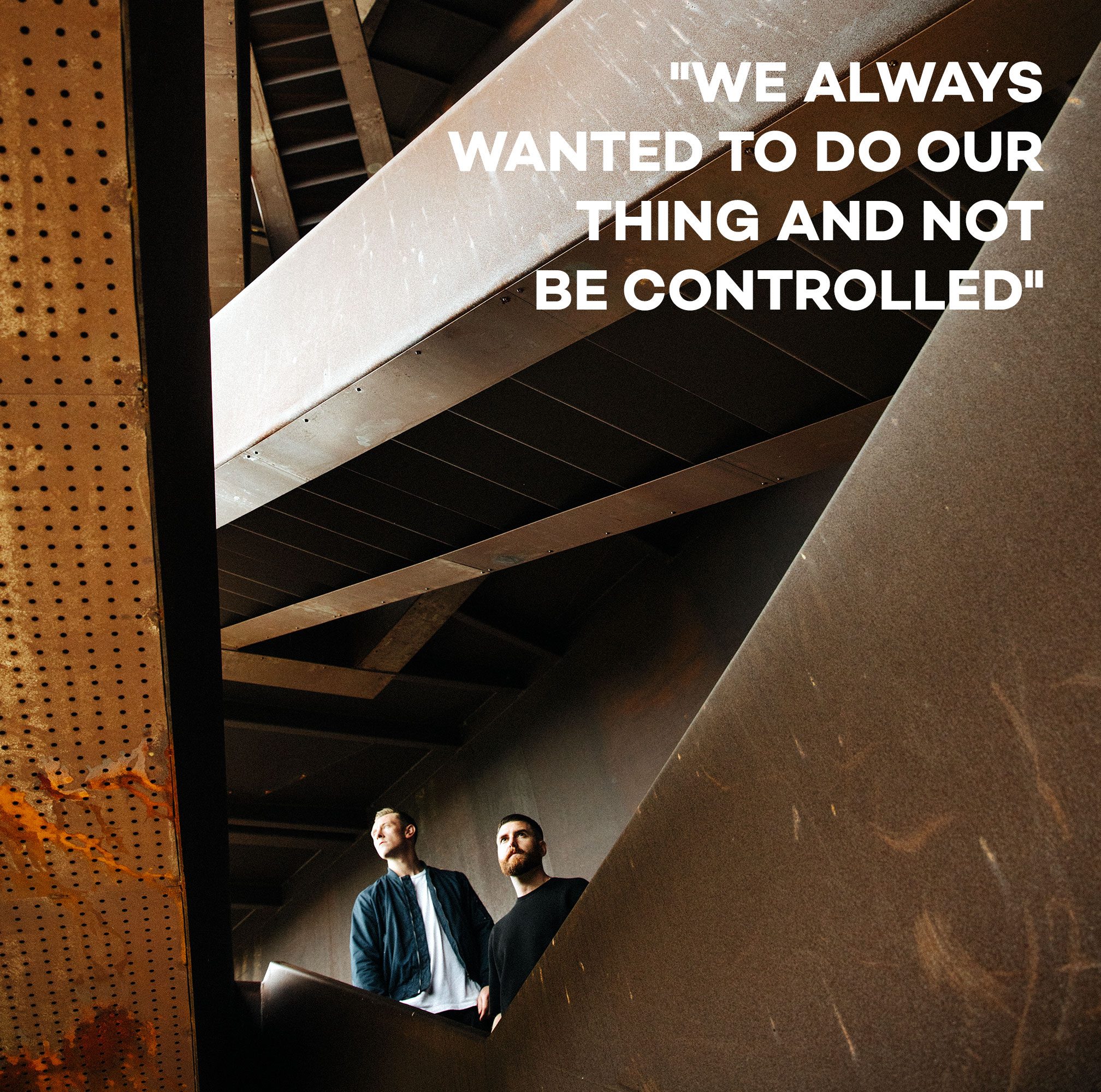
Perhaps Boy George will find more to like in their debut album. Its shades of early Moby, Orbital, Aphex Twin’s ‘Ambient: Selected Works’, trance and more cerebral influences like Steve Reich feels like a departure from what fans have come to expect. “There are definitely some tracks I don’t know if people will like,” says Matt. But then again, that doesn’t seem to matter. “The album’s not really about other people,” he continues. “It was just us doing our own thing.” If there’s any concept at all, says Matt, it goes back to the idea of freedom: they wanted to make something that wasn’t “confined to 4/4 dancefloor stuff” but instead suitable for “walking, trains or bike rides – somewhere you’re seeing a bit of scenery”.
A glance back at their blog and this grab-bag of sounds doesn’t actually feel so unusual at all. It’s a living archive of their ever-morphing interests, united by taste rather than genre. Jungle starts creeping in at 2014, ambient and techno in 2016. They say the way to make something new from all those influences was to push themselves to be experimental in the studio. If tracks started feeling too familiar – “or way too trancey!” quips Andy – they’d twist them in new directions, and out of their comfort zone. “There’s far too much dull, boring, comfortable music out there at the moment,” he says, “and we’re trying to make something vibrant. “We definitely try to avoid what’s instantly comfortable,” adds Matt. “We took it really far in the first few months, almost making hybrid, trap-type stuff.”
Maybe they’ll save the trap for album number two. For now, their debut is another leap beyond the rave curve and a high-five for the everyday dudes who’ve managed to make a living out of being passionate music fans. It begs the question: at a time when curation is competing with Spotify mood playlisting and DJs are increasingly playing the same music, can anyone do what they’ve done?
“Being able to go online and steal a load of DJs setlists and play them at a bar just makes you someone who’s replicating what they hear,” says Matt. “[Proper success] is down to putting in the hard work and sticking at it.” And of course there is, after all, no accounting for impeccable taste.
Bicep ‘Bicep’ is out now on Ninja Tune
This feature is from the October 2017 issue of Mixmag


